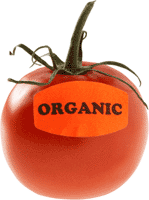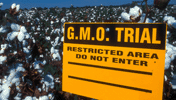|
The organic/GMO duo is attractive because it could produce more food, at lower cost, with fewer resources, and generate less pollution. The key is using seeds that have been genetically modified to deliver higher yield per acre, grow under adverse conditions, and thrive on land that was previously considered unfarmable. GMO seeds have been created that require less fertilizer and pesticide, too. Using sustainable farming approaches to grow these crops would maximize the food harvested while minimizing chemicals used, and reducing the need to turn more wildland into farmland.
Deutsche Bank is not the first to suggest this unlikely, and some would say unholy, union. A growing number of experts---including some very committed green activists---are discussing it too. However, virtually every conversation is accompanied by a very important caveat: there must be careful thought, complete testing, and true regulation to ensure that using GMO leverages its benefits without becoming a “Frankenfood” nightmare.
|











